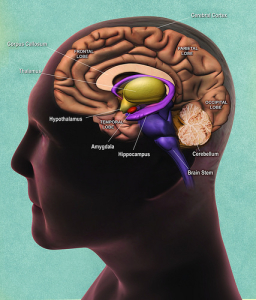
Alzheimer’s Disease can be prevented with lifestyle modifications including sleep, diet, exercise, meditation to name a few!
Alzheimer’s disease (AD) is an unfortunate disease that many people face and deal with. It is not only hard for the patients but also family members involved. Alzheimer’s is the most common cognitive declines and form of dementia. More than 5 million people have been diagnosed with AD (1). Pharmaceutical drugs don’t show much improvement despite millions dollars of pharmaceutical research. Alzheimer’s is actually more preventable and doesn’t have to be the debilitating disease many once believed. Despite family members having this disease it’s not something you are destined to have. A recent Study by the UCLA showed a reverse in cognitive decline with lifestyle modifications (2).
Sleep:
Sleep is imperative for optimal brain function. Attaining good quality restorative REM sleep allows you to function better while allowing you to recall more information making it less likely you’ll experience dementia. Even one night of disruptive sleep causes you to age faster (3,4). Studies show getting good quality sleep is an important factor of AD prevention. While sleeping, you remove neurotoxic waste products that accumulate while you’re awake (5,6). Quality sleep also allows you to perceive stress differently increasing your Brain derived neuropeptide Factor (BDNF), a protective memory protein, decreasing your risk of neurodegernative conditions (7).
Exercise:
It’s crucial to not only exercise your body but also your mind. Both with physical activity, meditation as well as “mind” games like Crosswords puzzle and Sudoku. According to the American Diabetic Association (ADA) you need to get at least 150 minutes of moderate aerobic exercise over 3 times a week. Studies have shown higher BDNF protects against AD (8). Exercise increases BDNF and shields against AD (9).
Diet:
Studies have shown diabetics are more prone to dementia and cognitive decline. The higher one’s hemoglobin A1C (marker for diabetes) is, the worse the outcome. This is why choosing a low carbohydrate and sugar diet is a favorite for dementia prevention (10). A high fat, refine sugar diet has also been linked to lower BDNF as well increasing your chances of AD (11).
A recent study in the British Journal of Medicine also showed the Mediterranean diet slows down aging and improves cognitive decline (12). The Mediterranean diet is rich is many antioxidants, healthy omega fatty acids and whole grains.
Meditate:
Meditating helps decrease cortisol levels which can contribute to “brain fog” causing one to be forgetful. Meditation reduces stress, improves depression as well as the overall quality of life. It has also been shown to reduce blood pressure, insulin resistance, oxidative stress and inflammation all which play a role in dementia (13).
Eliminate Aluminum:
There has been a link between aluminum as well as other metals to Alzheimer’s, however the mechanism is unknown. It is neurotoxic and can cause harm when it enters the brain (14). Even small exposure over time can be harmful to some people (15). Aluminum is easily available in cosmetic products like deodorants to cooking pans, medications, even some foods like coffee and processed foods as well as some vaccines. The goal is to limit your exposure to these things as much as you can.
Microbiota:
New emerging data has been linking the microbiota to many chronic medical conditions. An imbalance of GI microbes has been lined to decreased BDNF and increased AD amongst many other neurodegenerative conditions (16). Inflammation starts in the GI tract so take it is essential to promote a healthy digestive system. Vitamin K2 is made by bacteria in the gut which help regulate brain function (16). Encouraging patients to eat probiotic rich fermented rich foods and take a daily probiotic is advisable.
References:
1. Winslow et al. Treatment of Alzheimer Disease.Am Fam Physician. 2011 Jun 15;83(12):1403-1412.
2,Dale E. Bredesen. Reversal of cognitive decline: A novel therapeutic program . 2AGING, September 2014, Vol 6 N 9
3.Partial sleep deprivation linked to biological aging in older adults. AMERICAN ACADEMY OF SLEEP MEDICINE. Sleep. June.10.2015
4. University of Exeter. “Sleep makes our memories more accessible, study shows.” ScienceDaily. ScienceDaily, 26 July 2015.
5.University of Rochester Medical Center August 15, 2012 Scientists Discover Previously Unknown Cleansing System in Brain.
6.Lulu Xie et AL. Sleep Drives Metabolite Clearance from the Adult Brain.Science 18 October 2013:Vol. 342 no. 6156 pp. 373-377
7.Giese M Et Al, The interplay of stress and sleep impacts BDNF level. 2013 Oct 16;8(10):e76050
8.Galit Weinstein, PhD et AL. Serum Brain-Derived Neurotrophic Factor and the Risk for Dementia. Journal of the American Medical Association. January 1, 2014January 2014, Vol 71, No. 1
9.Berchtold NC et AL. Exercise primes a molecular memory for brain-derived neurotrophic factor protein induction in the rat hippocampus.Neuroscience.2005;133(3):853-61.
10.K.Yafee, MD et Al. Diabetes, impaired fasting glucose, and development of cognitive impairment in older women. Neurology August 24, 2004 vol. 63 no. 4 658-66
11.Molteni R et AL. A high-fat, refined sugar diet reduces hippocampal brain-derived neurotrophic factor, neuronal plasticity, and learning. Neuroscience.2002;112(4):803-14.
12.Lourida I et Al. Mediterranean diet, cognitive function, and dementia: a systematic review. Epidemiology.2013 Jul;24(4):479-89. doi: 10.1097/EDE.0b013e3182944410
13.Innes KE,Selfe TK. Meditationas a therapeutic intervention for adults at risk for Alzheimer’s disease – potential benefits and underlying mechanisms. Front Psychiatry. 2014 Apr 23;5:40. doi: 10.3389/fpsyt.2014.00040. eCollection 2014.
14.Masahiro Kawahara,andMidori Kato-Negishi Link between Aluminum and the Pathogenesis of Alzheimer’s Disease: The Integration of the Aluminum and Amyloid Cascade Hypotheses. Int J Alzheimers Dis. 2011; 2011: 276393.
15.Tomljenovic L.Aluminumand Alzheimer’s disease: after a century of controversy, is there a plausible link? J Alzheimers Dis.2011;23(4):567-98. doi: 10.3233/JAD-2010-101494.
16.Surjyadipta BhattacharjeeandWalter J. Lukiw. Alzheimer’s disease and the microbiome. Front Cell Neurosci. 2013; 7: 153.






